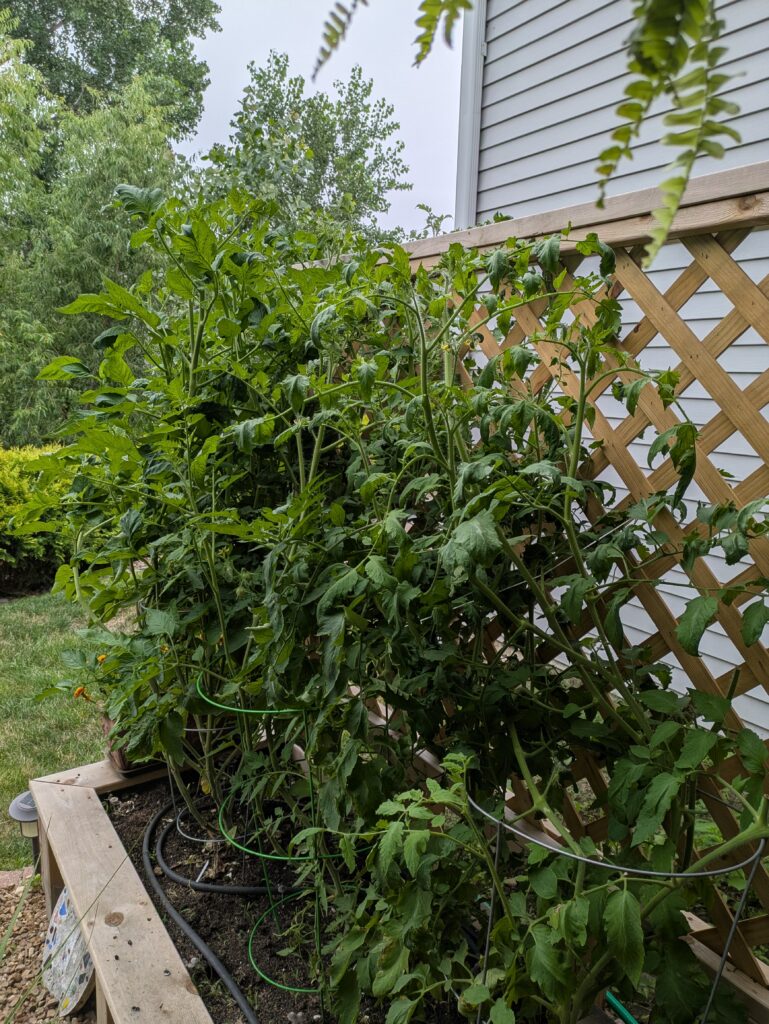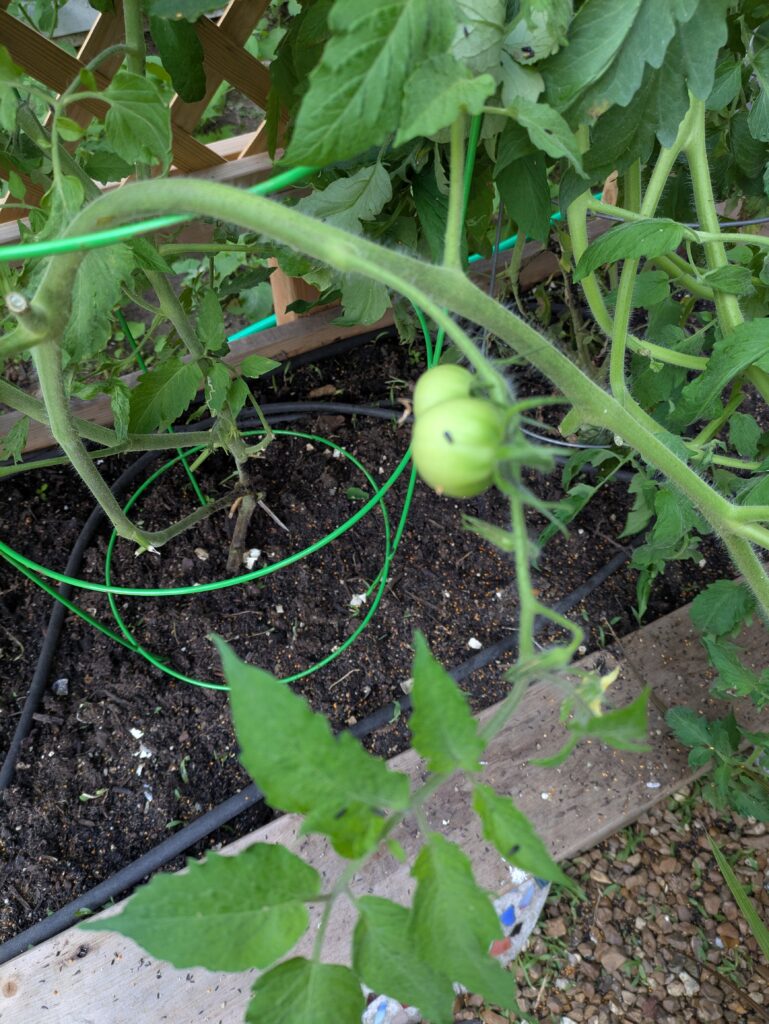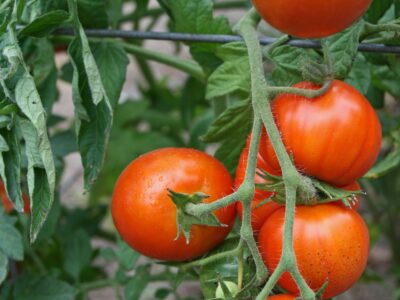One of the colorful idioms the American West has given us is “All hat, no cowboy.” A variation makes the meaning a bit clearer: “All hat and no cattle” conveys the image of someone who looks the part but lacks the skill and resources to back it up.
I’ve been leveling a similar charge against my tomato plants. Until now, they’ve produced abundant, lush green foliage—even blossoms. But no fruit.
My vision of juicy vine-ripened tomatoes faltered, much like those promising blossoms that had dried up and fallen off the hearty stalks. After sweet corn, the next best thing about summer in Iowa is fresh, homegrown tomatoes.

This spring, my husband built a raised bed and filled it with a mix of compost and store-bought dirt. What could be lacking? I scoured the internet for answers and finally determined the soil content might be the problem. A soil test revealed the pH balance was within range, but nitrogen and phosphorus seemed to be lacking.
Off we went to the nearby Earl May Garden Center to stock up on supplemental plant food. We shared our concerns with one staff member, who assured us we were on the right track with blood meal, a concentrated form of nitrogen and bone meal, high in calcium and phosphorus. Both are animal byproducts.
As we set our supplies on the checkout counter, the woman at the register picked up on our conversation.
“This is a bad year for tomatoes,” she offered.
I raised my eyebrows and cocked my head. Her gray hair and lined face indicated she may have a few growing seasons under that apron. “The weather hasn’t been right. Too hot too quick. Then it cooled down too fast. But,” she consoled, “it’s a great year for cucumbers.”
Unfortunately, we planted tomatoes, not cucumbers. But I was relieved to know we weren’t the only struggling gardeners. Farmers, too, know some years they can do everything right and the seeds they’ve planted still may not yield a bumper crop.
Back home, I pruned more branches from the plants, and we worked our recent purchases into the soil.
Our all-hat-no-cowboy tomato plants brought to mind our pastor’s recent sermon from Matthew 7. In warning his followers about false prophets, Jesus gave them and us a sign to distinguish true from false. Look for their fruit. A good tree bears good fruit; a bad tree bears bad fruit. A good tree cannot bear bad fruit nor can a bad tree bear good fruit.
My disappointment with my tomato plants made me wonder if God is as disappointed with me and my failure to bear fruit as I am with my tomato plants. Does he look at me and see someone who looks the part, even says all the right things—speaks Christianese—but fails to produce fruit? Do I bring joy to others by the joy I carry within? Am I an agent of peace—the peace of the Spirit? Can I generate even a modicum of kindness for my annoying neighbor?

This morning, two ping-pong size tomatoes were visible on one tomato plant.
Gardening takes patience and hard work. So does spiritual gardening.
I’m grateful the Master Gardener is more patient with my fruit-bearing than I’ve been with my tomatoes.



Leave a Reply